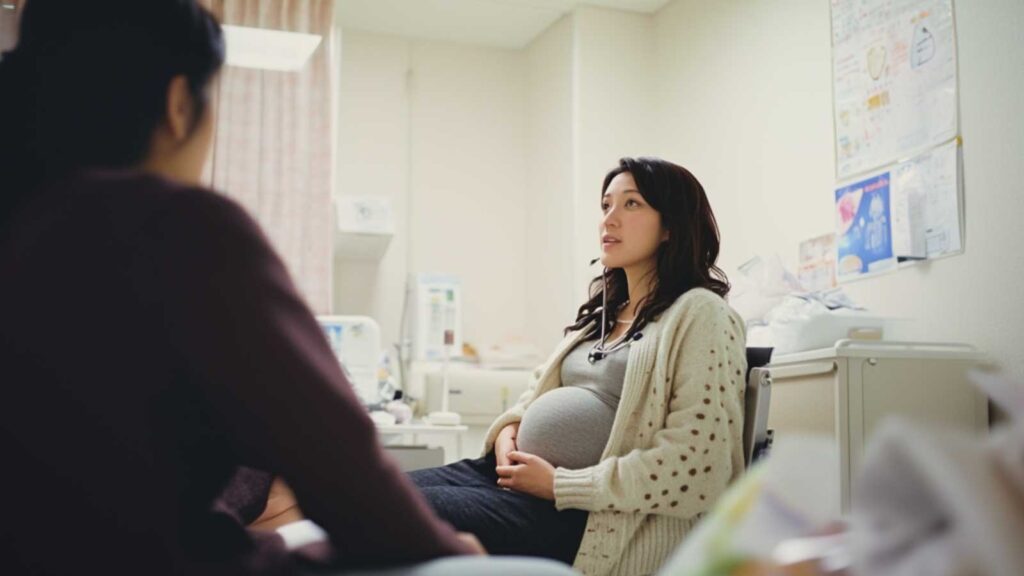Dealing with Irregular Periods? When It’s Time to See Your OBGYN

Irregular periods are something that many women experience at different points in their lives. While occasional fluctuations can be normal due to factors like stress or changes in diet, persistent irregularities could be a sign of an underlying health issue. Understanding when your menstrual cycle is truly irregular and when to seek professional help is […]
Common Gynecological Issues Women Face and How an OBGYN Can Help

Gynecological health plays a crucial role in a woman’s overall well-being. Unfortunately, many women experience common issues that, if left untreated, can lead to long-term health concerns. Whether it’s irregular periods, pelvic pain, or hormonal imbalances, these conditions can be disruptive. This blog will discuss some of the most common gynecological issues women experience and […]
The Role of Obstetrics in Pregnancy

“Obstetrician” or “obstetrics” are words you’ll hear or even say often during pregnancy. It’s part of a medical practice that deals specifically with women’s health at this life stage. But what exactly is the role of obstetrics in pregnancy, and why do we dedicate a singular practice to caring for women during pregnancy and childbirth? […]
Understanding Abnormal Pap Tests: Causes and Management

While receiving a series of abnormal Pap tests can feel alarming, it doesn’t necessarily indicate cancer. Instead, it typically means that you need further follow-ups to understand what’s causing the abnormal results. Abnormal results with comprehensive Pap smear tests can occur for various reasons. This guide walks you through everything they might mean, from infections […]
Prenatal Care: The Importance of Early and Regular Check-ups

Prenatal care is a pillar of obstetrics practice that protects and promotes the health and safety of mothers and babies throughout pregnancy. It is a proactive and vigilant approach to your and your baby’s care, ensuring total security until delivery. From a surface-level view, its role is straightforward enough—you come to the office, your OB-GYN […]
Genetic Testing in Prenatal Care: What to Know

Genetic testing can provide critical and valuable insights about your pregnancy. With them, you can identify potential genetic conditions or chromosomal abnormalities early and address them with the guidance of your OB-GYN. While these are optional, an OB-GYN can also recommend testing if you have specific predispositions to genetic conditions you reported during consultations. However, […]
Why You Should Never Skip Your Pelvic Exams

Pelvic exams are a fundamental part of preventive healthcare for women, yet they’re often misunderstood or overlooked. These exams play a vital role in maintaining your reproductive and overall health by identifying and managing potential gynecological issues early. Regular pelvic exams can detect a range of concerns, from benign conditions like cysts to serious ones […]
Understanding the Signs and Symptoms of Menopause

Menopause is a unique biological process that happens to your body, marking the end of your reproductive years. It typically occurs between 45 and 55 years old and could happen earlier or later for some women. Various symptoms accompany menopause, and while it’s a universal experience, it affects women differently. You can experience symptoms like […]
Can Endometriosis Cause Abnormal Bleeding?

“Can endometriosis cause abnormal bleeding?” is a question patients often ask us at our OB-GYN clinic for good cause. Abnormal bleeding, especially from the vagina, is a symptom of various reproductive concerns, leading many to wonder if endometriosis is among them. The short answer to that question is: yes, endometriosis can cause abnormal bleeding. Although […]
Can you get pregnant during perimenopause?

Perimenopause is a transitional phase in a woman’s life where hormone production and physiological changes start to affect reproductive processes. As estrogen and progesterone levels begin to decline, getting pregnant at this stage may get complicated, albeit not impossible. According to GPnotebook, you may still have a 10% to 20% chance of getting pregnant if […]
